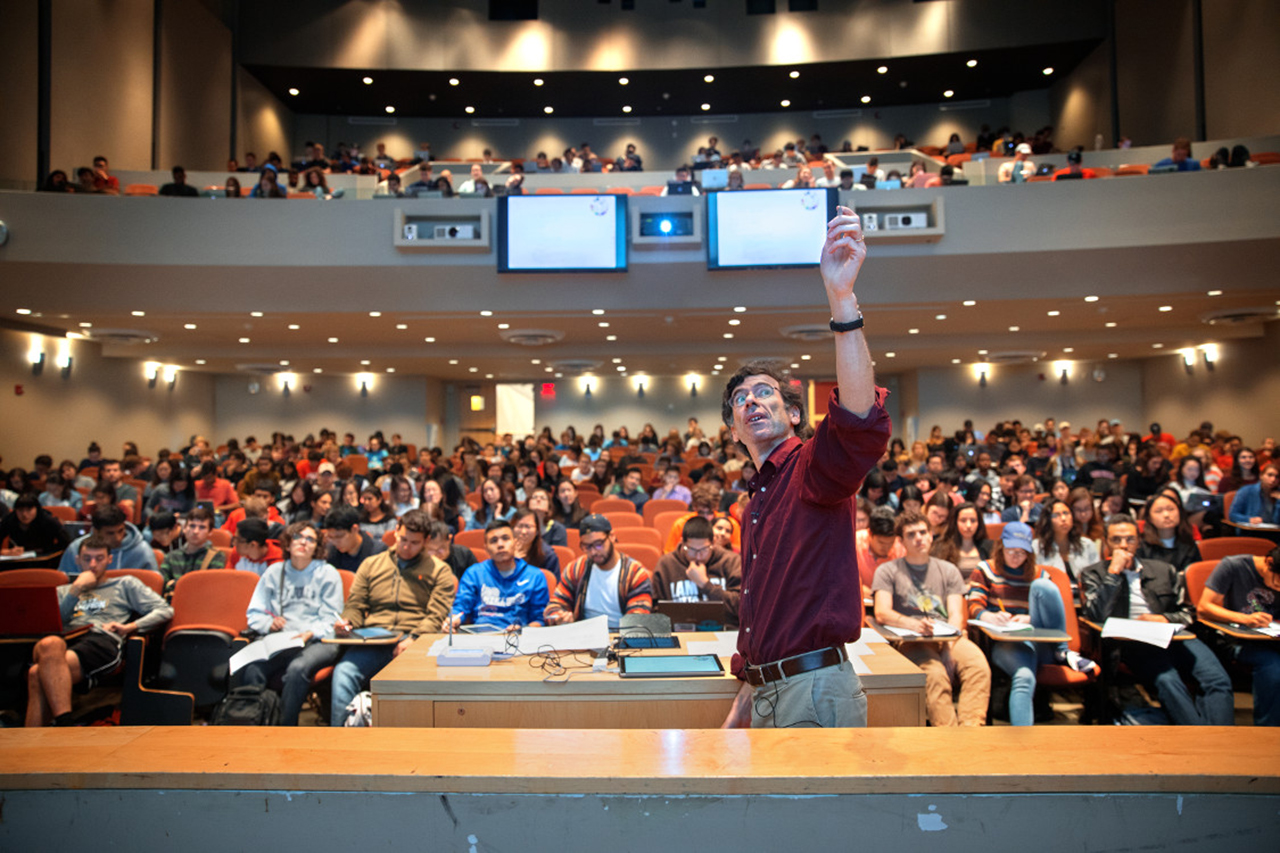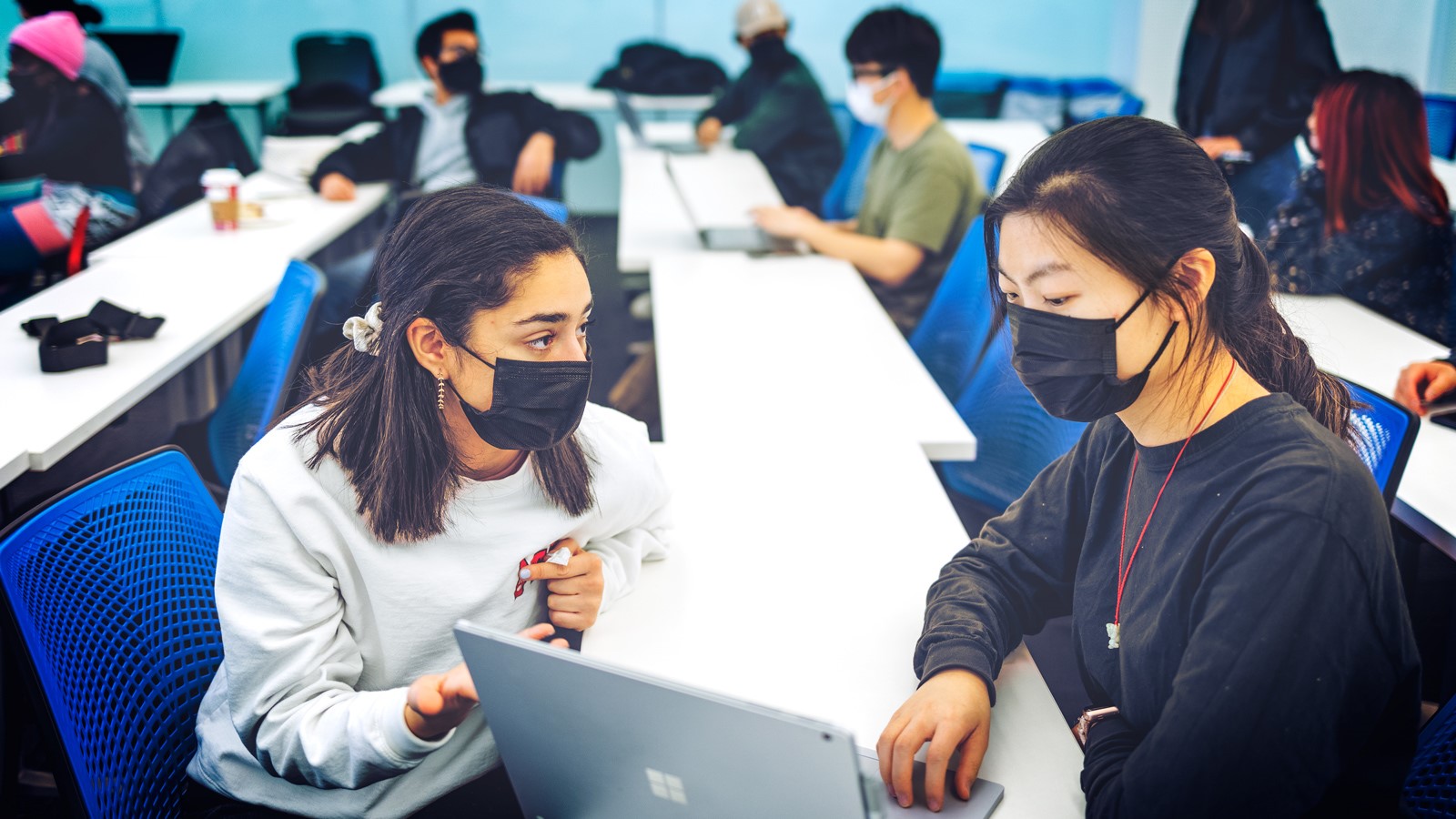- About
- Message from the Chair
- History
- Facilities
- News
- Events
- Info Sci Colloquium
- Advancing Responsible AI with Human-Centered Evaluation
- Bowers Distinguished Speaker Series - Julie E. Cohen, Georgetown University Law Center
- From Agents to Optimization: User Interface Understanding and Generation
- The Language of Creation: How Generative AI Challenges Intuitions—and Offers New Possibilities
- IS Engaged
- Graduation Info
- Info Sci Colloquium
- Contact Us
- Courses
- Research
- Computational Social Science
- Critical Data Studies
- Data Science
- Economics and Information
- Education Technology
- Ethics, Law and Policy
- Human-Computer Interaction
- Human-Robot Interaction
- Incentives and Computation
- Infrastructure Studies
- Interface Design and Ubiquitous Computing
- Natural Language Processing
- Network Science
- Social Computing and Computer-supported Cooperative Work
- Technology and Equity
- People
- Career
- Undergraduate
- Info Sci Majors
- BA - Information Science (College of Arts & Sciences)
- BS - Information Science (CALS)
- BS - Information Science, Systems, and Technology
- Studying Abroad
- MPS Early Credit Option
- Independent Research
- CPT Procedures
- Student Associations
- Undergraduate Minor in Info Sci
- Our Students and Alumni
- Graduation Info
- Contact Us
- Info Sci Majors
- Masters
- PHD
- Prospective PhD Students
- Admissions
- Degree Requirements and Curriculum
- Grad Student Orgs
- For Current PhDs
- Diversity and Inclusion
- Our Students and Alumni
- Graduation Info
- Program Contacts and Student Advising
A Strong Foundation
Technology is rapidly transforming our world, and that makes any study of technology and its impacts far from a passive pursuit. Indeed, the studying and understanding of this is inherently nimble, adaptive, interdisciplinary, and relevant. The Department of Information Science – housed within the powerhouse Cornell Ann S. Bowers College of Computing and Information Science – embodies these characteristics.
The department was born to address the growing opportunities, interactions, and challenges at the intersection of computing and society. Starting as a Ph.D. program and interdisciplinary minor in 2002, Information Science grew into a full-fledged major graduating the first five students in 2005. Its growth since then has been extraordinary.
Today, the Department of Information Science offers undergraduate degrees through the College of Arts and Sciences, College of Agriculture and Life Sciences, and College of Engineering, as well as Master of Professional Studies (M.P.S.) and Ph.D. degrees. The Cornell Tech campus in New York City also offers Information Science master's programs in Connective Media and Health Tech.
Kleinberg-2017-banner.jpg

Jon Kleinberg, professor of computer science and information science, teaches a Networks class.
A Powerhouse Department
Information Science at Cornell has come a long way from five graduates in 2005. Currently, the department enrolls nearly 600 undergraduate majors, more than 200 master’s students and nearly 90 Ph.Ds. Forty-two faculty members are appointed to Information Science – including Cornell University President Martha Pollack, a leading scholar in artificial intelligence, and many affiliated faculty members who work with Information Science students from other “home” departments, like Computer Science, Communication, and Engineering. Committed to being a home to a diverse community of scholars, Information Science embraces Ezra Cornell's founding principle of "any person, any study" and believes that multiple perspectives enhance creativity.
With the official dedication of the Cornell Tech campus in September 2017, Information Science grew from one homebase to two. Located on Roosevelt Island in NYC, Cornell Tech continues Information Science’s tradition of forward-looking research and bold, audacious collaboration. Of the 42 faculty members, nine are based at Cornell Tech and are leaders in their respective fields: Shiri Azenkot, Tanzeem Choudhury, Nicola Dell, Wendy Ju, Mor Naaman, Rajalakshmi Nandakumar, Helen Nissenbaum, Tapan Parikh, and Angelique Taylor. Though we are two campuses, we are one Cornell.
The Student Experience
Information Science has several areas of study within which students can focus their coursework and research:
- Behavioral Science draws on the fields of psychology, sociology, and communication, allowing researchers to analyze the ways in which people interact with technology and how that interaction affects their individual well-being, their relationships and society as a whole.
- Data Science empowers students to learn about the world through data analytics.
- Digital Culture and Production explores computing as a cultural phenomenon and empowers students to analyze technology's role in society and culture, to understand it historically, and to produce media artifacts.
- Information Ethics, Law, and Policy provides training and insight into the ethical, legal, and policy dimensions of contemporary information technology.
- Interactive Technologies offers training in the analytical and technical skills to design and build functioning technical systems.
- Networks, Crowds, and Markets helps students to understand formal models, data and policy issues surrounding networked systems.
- UX (User Experience) provides a foundational understanding of the design process learning to the creation of successful, enjoyable technology-based user experience.
Students receive a holistic academic experience that combines world-class scholarship — with a solid foundation of technical expertise, strong fundamentals, and theory — with unique experiential learning opportunities that go beyond the classroom and challenge students to think, interact and learn in a real-world environment. These skills and experiences equip our students to be game-changers in the field and have gone on to jobs with many of the major tech and social media companies, such as Google, Microsoft, Apple, Facebook, and Verizon. Others have joined start-ups, formed their own, or volunteered their expertise at not-for-profit organizations.
Cornellians STudents work on project Fall 2021.jpg

The group holds regular “subteam” meetings where members collaborate on coding and design. (Photo by Sreang Hok / Cornell University)
Guiding Research From World-Class Scholars
Information Science faculty and students explore the social, cultural, economic, historical, legal and political contexts of technology, approaching information studies from a variety of different fields and looking at the individual, social and institutional impacts. Innovators in our department guide the field in several research areas like human-computer interaction, robotics, social networks, and tech-law policy, shine at major conferences like CHI, UbiComp and CSCW, and are regularly quoted in media outlets, including The New York Times, ABC and CBS News, NPR, and Vox, among many others.
Here are some recent highlights:
- Maurice Jakesch and Anna Evtushenko, doctoral students in the field of information science, and Mor Naaman, professor of information science at the Jacobs Technion-Cornell Institute at Cornell Tech, found that people tend to trust the opinions of a large group whether it’s composed of liberals or conservatives.
- René Kizilcec, assistant professor and director of Cornell’s Future of Learning Lab, is a leading scholar in online learning. A recently named Jacobs Foundation Fellow, Kizilcec has examined nearly every facet of tech-assisted learning, with the goal to improve access and equity.
- Karen Levy, assistant professor in information science and an associate member of the Cornell Law School faculty, is a leading researcher in the area of ethics, law and policy and has written pieces for The Atlantic, L.A. Times, The New York Times, and the Washington Post. Her book “Data Driven: Truckers and the New Workplace Surveillance” will be published in 2022.
- Joy Ming and Sharon Heung, doctoral students in the field of information science, explored response bias in accessibility research and discovered ways to mitigate it: build relationships within the disability community; ensure the environment and research methods are fully accessible, and frame the interaction as a collaborative or exploratory experience. Professors Shiri Azenkot and Aditya Vashistha were coauthors on this work.
- Swati Mishra, a doctoral student in the field of information science, and Jeff Rzeszotarski, assistant professor, designed interactive transfer learning tools to help train non-experts how to harness machine learning in their everyday lives.
- Sharifa Sultana, a doctoral student in the field of information science, found that in remote parts of Bangladesh with little internet access, people have relied on local experts, spiritual views and their sense of social justice to evaluate new coronavirus information.
- Cheng Zhang, assistant professor and director of Cornell’s SciFi Lab, is at the forefront of wearable sensing technologies. Most recently, his Lab has designed: NeckFace – a neck-mounted device that continuously tracks full facial expressions by using infrared cameras; C-Face – this ear-mounted device, developed with fellow Info Sci faculty member Francois Guimbretière, continuously tracks full facial expressions by observing the contour of the cheeks; and FingerTrack – a wrist-mounted device that continuously tracks the entire human hand, including 20 finger joint positions, using three or four miniature thermal cameras.
Elsewhere, in an exciting initiative announced in 2021, Cornell University launched a Radical Collaboration initiative around artificial intelligence that will leverage the university’s unparalleled brain trust in this field. Information Science and its faculty will have a critical role in this interdisciplinary initiative.



